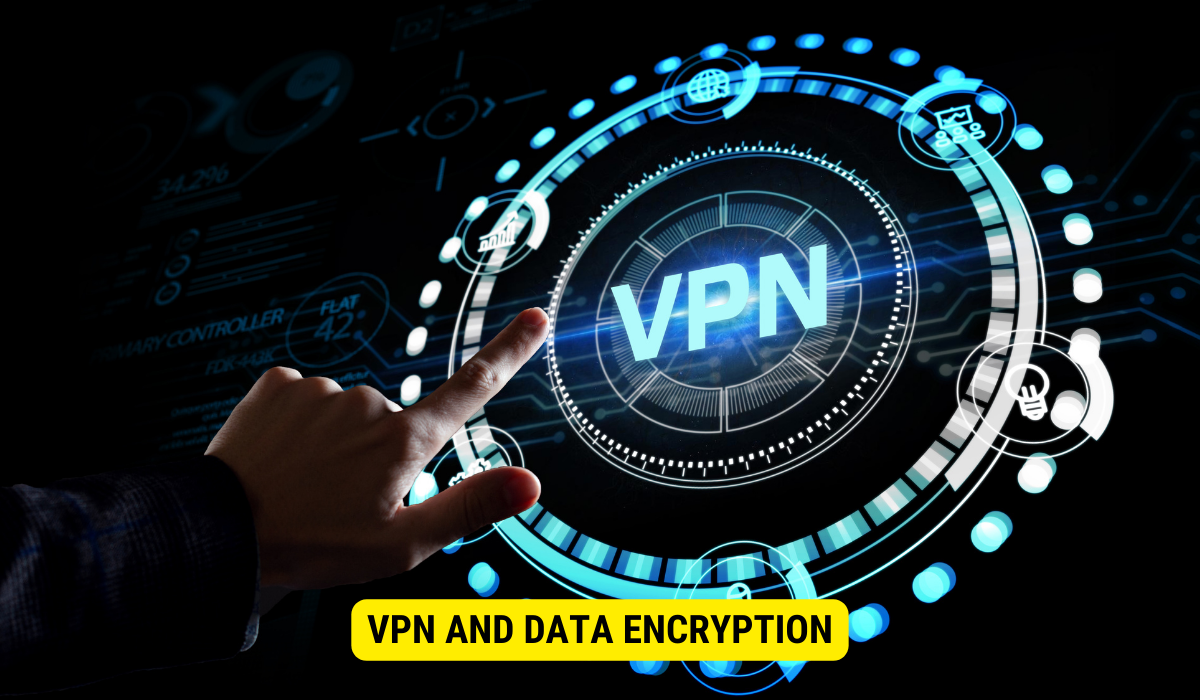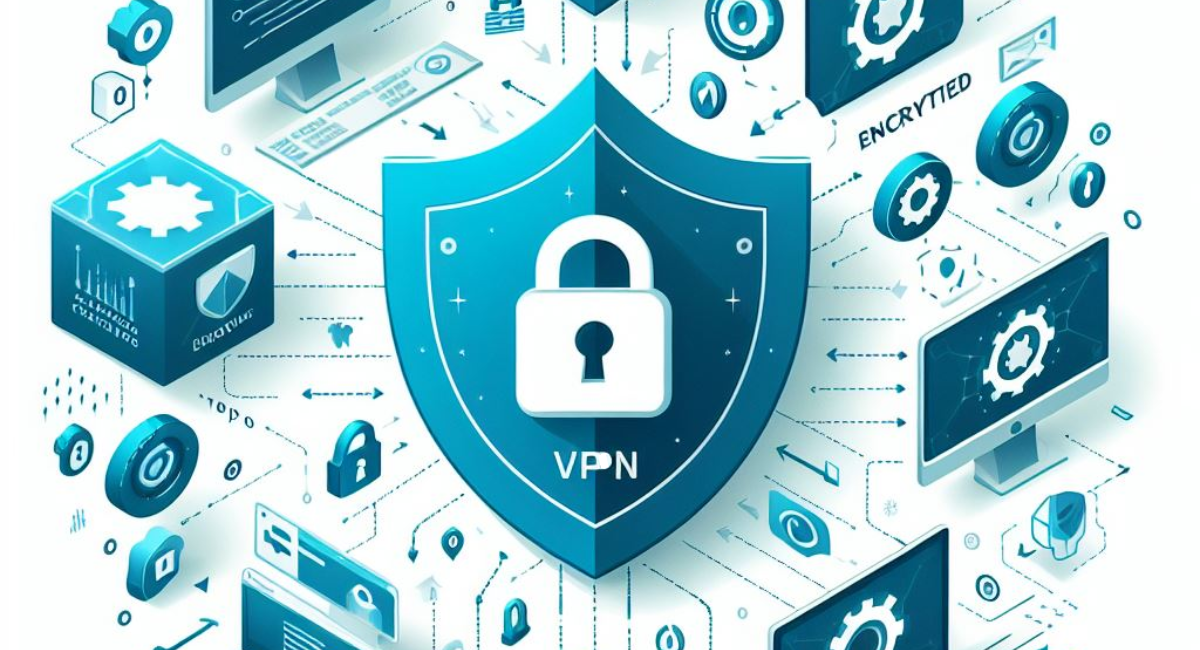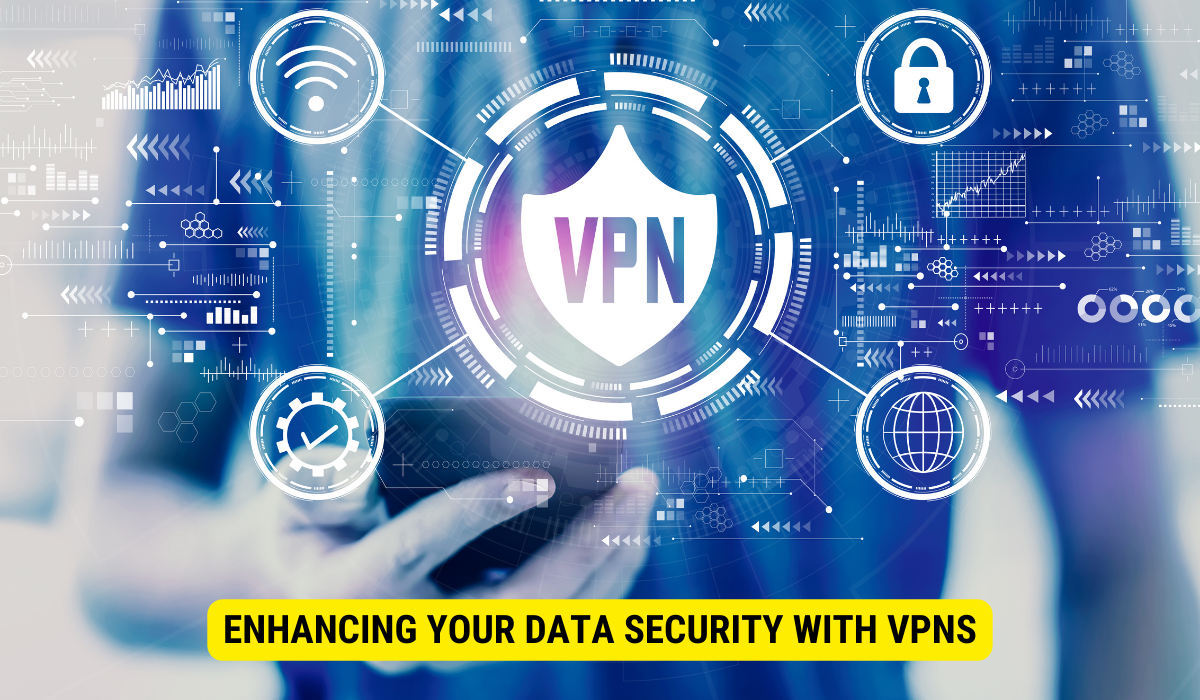A VPN does encrypt data, offering a secure connection even when communicating with insecure servers. However, the data’s security once it leaves the VPN server and heads to its final destination depends on the security measures of that destination server.
Understanding VPN and Data Encryption

A Virtual Private Network (VPN) is a tool enabling users to safely access a private network via a public one, like the Internet. It forms a confidential, encrypted passageway shielding your information from unauthorized access and potential dangers.
Using a VPN, your device forms a protected link to an offsite server managed by the VPN provider. This server serves as a go-between for your device and the Internet. Your online data travels through this secure passage, maintaining its confidentiality.
A primary advantage of a VPN is its capability to disguise your IP address. An IP address acts as a distinct signifier, revealing your locale, and can be a window into your digital behavior. With a VPN, your IP address is substituted with that of the VPN server, complicating efforts to associate your online actions directly with you.
What is a VPN?
A VPN serves as a shield between your device and the Internet, preserving the confidentiality and safety of your online actions. It hides your IP address and encodes your online data, posing challenges for any attempts to access or interpret your information. Employing a VPN results in your online data being encoded through different encryption standards like OpenVPN, IPSec, or WireGuard. These standards employ intricate techniques to jumble your information, rendering it indecipherable to unauthorized entities.
Furthermore, VPNs provide an additional layer of security by offering features such as kill switch and DNS leak protection. A kill switch automatically disconnects your device from the Internet if the VPN connection drops, preventing your data from being exposed. DNS leak protection ensures that your DNS queries are also routed through the VPN tunnel, preventing any potential leaks of your browsing history.
The Role of Encryption in VPNs

Encryption is crucial in VPNs as it scrambles your data and makes it unreadable to unauthorized individuals. It converts your data into an encoded form that can only be decrypted by the intended recipient, ensuring it remains confidential and protected.
There are different levels of encryption used in VPNs, ranging from 128-bit to 256-bit encryption. The higher the encryption level, the more secure your data is. VPN providers often use military-grade encryption to ensure their users’ highest level of security.
In addition to encryption, VPNs also employ authentication mechanisms to verify workers’ identity and prevent unauthorized access. This typically involves using usernames, passwords, and digital certificates to establish a secure connection.
It’s important to note that while VPNs provide high security and privacy, they are not foolproof. It’s still essential to practice good online hygiene and be cautious of the websites you visit and the information you share online.
How VPNs Interact with Insecure Servers?
While VPNs are known for providing enhanced security and privacy, it is important to understand how they interact with insecure servers and the potential risks involved.
Defining Insecure Servers
Insecure servers lack robust security measures or may be vulnerable to breaches. These servers can be compromised, allowing unauthorized access or tampering with the data transmitted.
When it comes to insecure servers, various factors contribute to their vulnerability. Outdated software, weak encryption protocols, and inadequate security configurations are common reasons servers become insecure. Additionally, servers not regularly patched or updated are more susceptible to attacks.
Furthermore, insecure servers can be a result of human error. Misconfigured settings, weak passwords, or insufficient access controls can create loopholes that cybercriminals can exploit.
The VPN-Insecure Server Connection
A VPN encrypts your data from your device to the VPN server, ensuring that it remains protected. However, once your encrypted data reaches the insecure server, it may be decrypted or exposed to potential vulnerabilities.
When you connect to an insecure server through a VPN, it is crucial to understand that the security provided by the VPN only extends up to the VPN server. Beyond that point, the security of your data depends on the security measures implemented by the server you are connecting to.
In some cases, the insecure server may not have any security measures, leaving your data vulnerable to interception or manipulation. This can be particularly concerning if you transmit sensitive info such as passwords, financial details, or personal data.
Choosing trustworthy VPN providers and being cautious when connecting to insecure servers is important to minimize the risks involved. Researching the security practices of the VPN provider and the server you intend to connect to can help you make more informed decisions.
Taking steps like using firewalls, employing antivirus programs, and consistently updating your gadgets can boost your defense when engaging with unsecured servers.
Remember, while VPNs offer an extra layer of security, they do not guarantee complete protection when connecting to insecure servers. Awareness of potential risks and taking necessary precautions is essential to safeguard your data and privacy.
The Process of VPN Data Encryption
Understanding how the data encryption process works within a VPN can provide insights into its effectiveness and security level.
When you use a VPN, your data goes through a series of steps to ensure encryption:
- Your data is encrypted on your device using cryptographic algorithms.
At the first step of the data encryption process, cryptographic algorithms come into play. These algorithms are complex mathematical functions that convert your data into an unreadable format. Doing so ensures that even if someone intercepts your data, they won’t be able to make sense of it without the decryption key.
- Encrypted data is transmitted through the secure VPN tunnel to the VPN server.
Once your data is encrypted, it is transmitted through a secure VPN tunnel. This tunnel is a protective shield, preventing unauthorized access or eavesdropping. It creates a private pathway between your device and the VPN server, ensuring your data remains confidential and secure.
- The VPN server decrypts the data, accessing its contents.
Upon reaching the VPN server, the encrypted data is decrypted. The VPN server possesses the necessary decryption key to unlock the encrypted data. By decrypting the data, the VPN server gains access to its contents and prepares it for further processing.
- The VPN server encrypts the data again, keeping it protected.
After accessing the contents of the data, the VPN server takes an extra step to ensure its security. It encrypts the data once again, adding a layer of protection. This double encryption process enhances the security of your data, making it even more difficult for any potential intruders to decipher.
- The encrypted data is sent to the destination server.
Finally, the VPN server sends the encrypted data to the destination server. The destination server, unaware of the source of the data, receives the encrypted information. It remains oblivious to the content of the data, as it can only be decrypted by the intended recipient.
The Role of Encryption Protocols
VPNs use encryption protocols like OpenVPN, IPSec, and WireGuard to establish secure connections and protect your data. These protocols offer different levels of encryption strength and compatibility, allowing you to choose the most suitable one for your needs.
OpenVPN is a popular protocol recognized for its potent encryption strengths. It leverages OpenSSL resources and can work with several encryption methods, notably AES. AES, known for its symmetric encryption, is considered very reliable.
Conversely, IPSec functions at the OSI model’s network layer. It delivers strong security aspects like encryption, verification, and integrity validations. Additionally, IPSec can integrate with encryption methods like 3DES and AES.
WireGuard is a relatively new VPN protocol that aims to provide simplicity, speed, and modern cryptography. It utilizes state-of-the-art cryptographic primitives, such as Curve25519 for key exchange and ChaCha20 for encryption, ensuring efficient and secure data transmission.
By offering a range of encryption protocols, VPNs allow users to choose the level of security that aligns with their specific requirements. Whether you prioritize speed, compatibility, or maximum encryption strength, a protocol can cater to your needs.
Potential Risks and Limitations of VPN Encryption
While VPN encryption provides solid security for your data, it is vital to be aware of the potential risks and limitations.
Understanding VPN Encryption Vulnerabilities
No system is entirely foolproof, and VPN encryption is no exception. While encryption ensures your data is secure, encryption protocol vulnerabilities or implementation can compromise its integrity.
It is crucial to stay informed about any vulnerabilities and promptly update your VPN software to address any identified security issues.
Limitations of VPNs in Protecting Data
While VPNs are an effective tool for protecting your data, they do have some limitations:
- Some VPN providers may keep logs of user activities, potentially compromising privacy.
- Vulnerabilities in the fundamental operating system or applications can still expose your data.
- Using an outdated or incorrectly configured VPN can weaken its security.
Understanding these limitations and taking additional security measures to safeguard your data is important.
Enhancing Your Data Security with VPNs

Although VPNs provide a significant layer of security, there are additional steps you can take to maximize data protection.
Choosing the Right VPN for Maximum Security
When selecting a VPN, consider these factors to ensure maximum security:
- Look for VPN providers with a no-logs policy to protect your privacy.
- Choose VPNs that use strong encryption protocols and regularly update their software.
- Check for additional security features, such as a kill switch or multi-factor authentication.
Additional Measures to Secure Your Data
Complement your VPN usage with these additional security measures:
- Regularly update your operating system and applications to cover any security vulnerabilities.
- Use strong, unique passwords for all your accounts and enable two-factor authentication whenever possible.
- Avoid clicking on suspicious links or downloading files from untrusted foundations.
Combining VPN usage with these measures can significantly enhance your data security and protect your information from potential threats.
FAQs
What is a VPN, and why is it essential?
A VPN (Virtual Private Network) is a technology that establishes a secure connection over the Internet, masking your IP address and encrypting data to ensure privacy.
Does a VPN ensure total anonymity online?
While a VPN masks your IP address and encrypts your data, it doesn’t guarantee total anonymity, especially if the VPN provider keeps logs or has vulnerabilities in the underlying system.
How does a VPN interact with insecure servers?
VPNs encrypt your data and transmit it securely to its server. However, in a post-VPN server, the data security relies on the destination server’s measures.
What are the vulnerabilities of VPN encryption?
VPNs can have vulnerabilities in their encryption protocols, or their security can be compromised if they’re outdated or misconfigured.
What should I consider when choosing a VPN for maximum security?
Look for a no-logs policy, strong encryption protocols, regular updates, and additional security features like a kill switch or multi-factor authentication.
Key Takeaways
- VPN Encryption: VPNs use cryptographic algorithms to scramble your data, offering privacy and protection against unauthorized interception.
- IP Masking: VPNs replace your original IP address with the VPN server’s IP, making it difficult for anyone to trace your online activities.
- Insecure Server Interaction: The protection offered by the VPN extends only to the VPN server. Beyond that, data security relies on the destination server’s safety measures.
- Importance of Updates: Regularly updating the VPN software is crucial to address identified security issues and vulnerabilities.
- Enhanced Security: Using VPNs with other measures like strong passwords and two-factor authentication can maximize data protection.
Conclusion
VPNs are pivotal in encrypting data and enhancing online privacy. While they provide a significant layer of protection, understanding their interaction with insecure servers and recognizing their limitations is crucial. Users can achieve optimal data protection by complementing VPN usage with other security measures.
